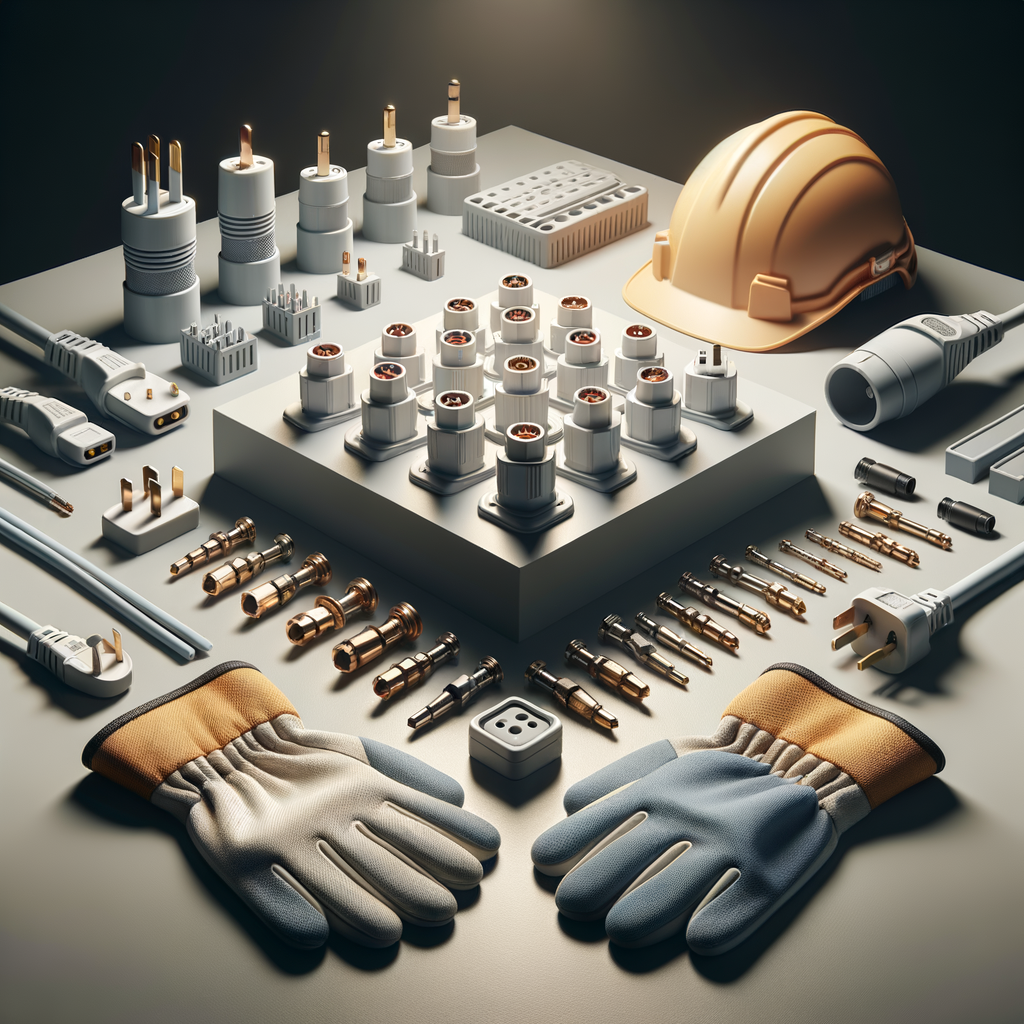Choosing the Right Plugs and Connectors for Electrical Safety

Choosing the Right Plugs and Connectors for Electrical Safety
In any DIY or professional electrical project, safety is paramount. Selecting the appropriate plugs and connectors not only ensures compliance with UK safety standards but also protects you, your colleagues, and your property from electrical hazards. Whether you're installing a new power supply or repairing an existing setup, understanding the differences, ratings, and proper applications of plugs and connectors is vital.
This guide provides experienced DIYers, builders, tradespeople, and engineers with practical advice on how to choose the right components, backed up by technical expertise and industry standards. Let's dive into the essentials of electrical safety through proper selection of plugs and connectors.
Why Correct Selection of Plugs & Connectors Matters
Electrical components are the first line of defence against risks such as short circuits, shocks, and fires. Using the wrong type or rating can compromise safety, cause damage, and violate UK electrical regulations.
Properly rated plugs and connectors ensure:
- Reliable electrical connections for safe operation
- Prevention of overloads and electrical faults
- Compliance with UK standards such as BS1363 for sockets and plugs
- Longer lifespan and resistance against wear and environmental factors
Key Factors in Choosing Electrical Plugs and Connectors
1. Current and Voltage Ratings
Every plug and connector has specified maximum current (measured in amps) and voltage ratings. Always verify these specifications match or exceed the requirements of your load.
- Typical UK plugs are rated for 13A. For higher loads, consider industrial connectors or specialised equipment.
- Match the plugs ratings to your devices power specifications to avoid overheating or failure.
2. Application and Environment
Consider where and how the components will be used:
- Indoor vs. outdoor: Use weatherproof connectors for outdoor, damp environments.
- Heavy-duty vs. light use: Choose connectors designed for frequent connections or high-impact environments.
- Type of equipment: Power tools, extension leads, appliances, or industrial machinery may require specific connector types.
3. Compatibility and Standards
Always select connectors that conform to UK and international standards:
- UK standard BS1363 plugs are common for household use.
- CeeForm and Hirschmann industrial connectors are suitable for heavy-duty or specialised applications.
- For data or low-voltage applications, ensure connectors meet relevant specifications.
Common Types of UK Plugs and Connectors
BS1363 Standard Plugs & Sockets
Most household electrical outlets in the UK feature the BS1363 standard. These are designed for appliances up to 13A and include features like fuse protection.
- Type: 3-pin plug with fuse
- Use: Domestic appliances, power extension cords
- Tip: Always check that your plugs fuse matches the appliances load.
Extension Leads and Adaptors
Extension cables are practical but must be correctly rated:
- Use heavy-duty extension leads made with correct cable thickness for high-power tools.
- Verify connectors are weatherproof if used outdoors.
Industrial and Heavy-Duty Connectors
For construction sites or industrial environments, consider CeeForm connectors, known for robustness and environmental resistance.
- Designed to handle higher currents
- Suitable for machinery and outdoor applications
How to Practically Choose the Right Plug or Connector
Step 1: Assess Your Power Needs
Identify the maximum current and voltage your equipment requires. Refer to product manuals or labels.
Step 2: Select the Correct Rating
Match the rated current and voltage with your needs. When in doubt, opt for a higher rating to ensure safety margins.
Step 3: Consider the Environment
Choose weatherproof or heavy-duty connectors for outdoor or industrial use.
Step 4: Verify Standards and Certifications
Ensure the products comply with BS1363 or relevant international standards.
Step 5: Install and Maintain Properly
Follow manufacturer instructions and regularly check for wear, damage, or loose fittings.
Practical Safety Tips
- Never use damaged or frayed cables and connectors.
- Do not overload outlets; be aware of the maximum current capacities.
- Use appropriately rated fuses and circuit breakers.
- For outdoor projects, always use weatherproof connectors and covers.
- Seek professional advice for complex or high load installations.
Summary Table: Comparing Common UK Plug Types
| Feature | BS1363 Standard Plug | CEEForm Industrial Connector | UK Extension Lead |
|---|---|---|---|
| Rated Current | 13A | Up to 32A | Varies (check label) |
| Environment | Indoor & light outdoor | Heavy-duty, outdoor | Indoor & outdoor |
| Compatibility | Household appliances | Heavy machinery | Power tools, outdoor appliances |
| Weatherproof | No | Yes | Depends |
| Certification | BS1363 | CeeForm / IEC standards | Varies |
Final Words
Selecting the right plugs and connectors isn't a task to take lightly. It's a core part of ensuring safe, reliable, and compliant electrical installations whether you're installing a new socket, repairing an extension cord, or wiring machinery.
At Cynnal, we stock a wide range of certified plugs and connectors suited for every project, from domestic repairs to industrial builds. Always prioritise safety, check ratings, and adhere to standards.
Remember: When in doubt, consult a qualified electrician or technical expert to advise on your specific application.